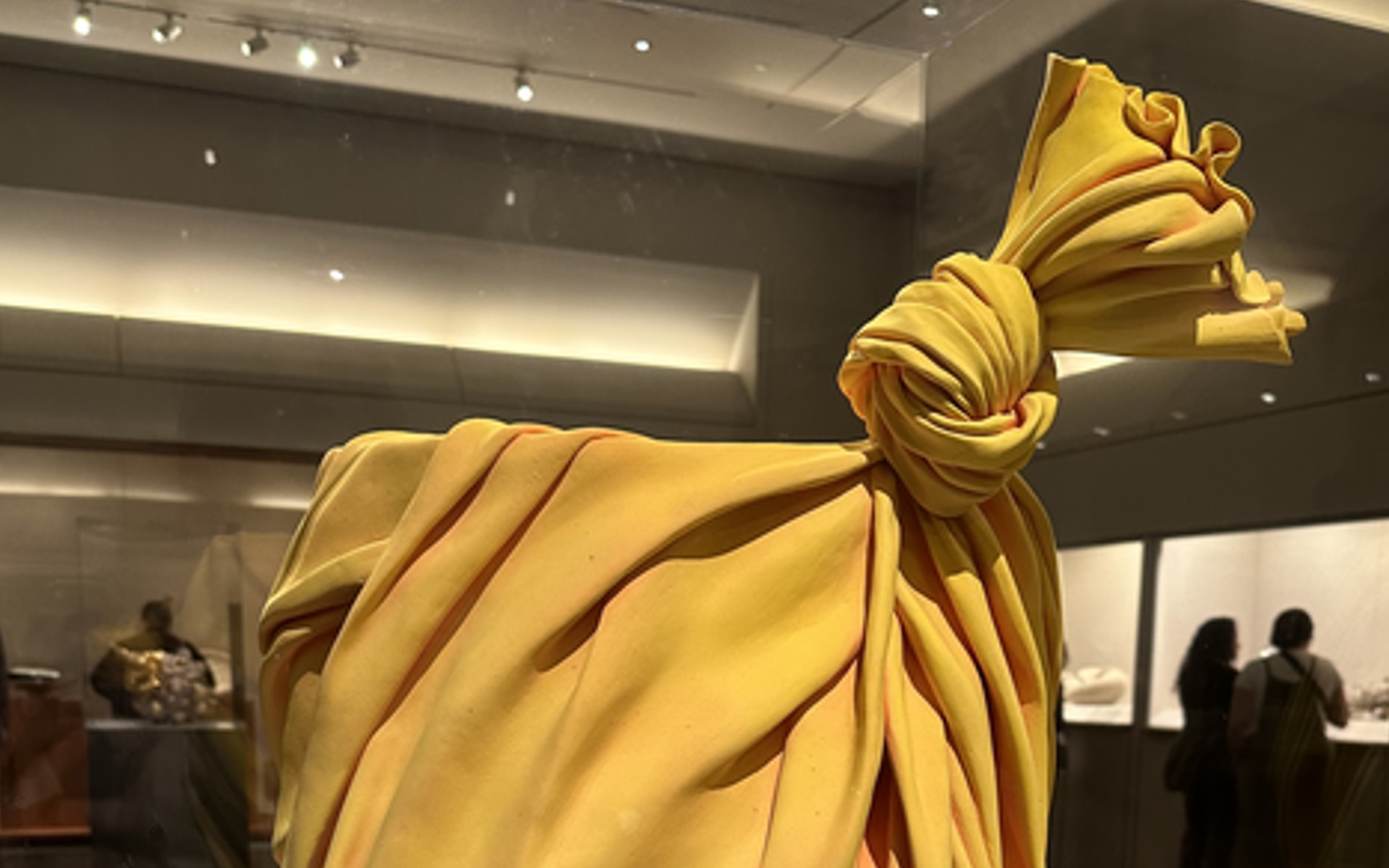In the end it was all there. The elaborate pregame fireworks. The highest-stakes soccer. The shimmering, golden World Cup Trophy awaiting one and only one team at the end. And Lionel Messi—a man long ago turned myth, even if he is still technically earthbound—hoisting the trophy above him as his teammates carried him aloft in a pose, intentional or not but nonetheless calling back to another Argentine soccer legend of long ago, the only one who could even be compared to El Maestro. The voice of soccer in the United States, Andrés Cantor, himself a child of Buenos Aires, provided the perfect soundtrack to the movie-making moment. Hollywood could not have scripted it better.
The thing about a big, emotional ending is it can paper over a lot of what it took to get to that moment, the ugly parts getting washed away in a rush of adrenaline and sea of tears. That's what I kept coming back to as I watched the storybook ending to Messi's storybook international career. It was such a beautiful moment that you could forget everything else: The endemic FIFA corruption. The hostility toward showing support on the field for LGBTQ people. The fact that Qatar's women's team hasn't played a game in eight years. The countless deaths of workers who built the stadiums where these golden moments took place.
I do not labor under the impression that other World Cups are spotless. How could you measure? The previous World Cup was held in Russia, almost exactly halfway between two separate invasions of Ukraine. The 1978 World Cup was held amid Argentina's "Dirty War," in which a military dictatorship ruled the country and and had up to 30,000 people "disappeared." These sorts of regimes are particularly amenable to big, international showcases: A FIFA secretary general once said "less democracy is sometimes better for organizing a World Cup." (In the same article, then-FIFA president Sepp Blatter, later tried and acquitted for fraud, tried to make it sound like the 1978 tournament was a good thing because it provided "reconciliation" for Argentinians about the "the military system at the time," which is such a ludicrous statement that I cannot believe that I typed that sentence, let alone that he said it.) The World Cup is not, nor has ever been, anything more than a sporting event that goes to the highest bidder.
And yet the human price of this event loomed over it all. Much of that is due to the tireless work of human rights advocates who have documented, at least as well as possible, the likely thousands of workers who died building the World Cup facilities in Qatar. In response, Qatar did make significant changes to its labor laws. Since then, in a Guardian article speaking to five different people who understood or had experience with the Qatari labor system, the reaction to these improvements ranged from seeing them as small but significant to an anonymous construction manager saying, still, "there’s no accountability."
Last week, I called Natasha Iskander, the James Weldon Johnson professor of urban planning and public service at New York University's Wagner School of Public Service, because she has conducted research on migrant workers across the globe for decades, including publishing a book about the conditions for migrant workers in Qatar. I started out by asking her the same question that countless reporters had surely asked her before—why is it so hard to pin down how many workers died? She said the biggest reason these deaths are hard to quantify is because they are due to extreme heat.
"Heat doesn't kill in an obvious way, it doesn't leave a clear fingerprint, it looks like many other things," Iskander said. "So it'll look like kidney failure. It'll look like cardiac arrest. It'll look like some other failure of another organ system. So heat is really ambiguous as a killer in terms of the fingerprint it leaves."
Injuries from extreme heat also might be misclassified as natural causes of death or might not present themselves until years later. Iskander said she believes the Guardian estimate in 2021 of more than 6,500 South Asian migrant workers dying in Qatar since the country was awarded the World Cup is probably on the low end.
But Iskander also wondered why so many reporters, like me, called her with the same question: How do we count the death? At first, she said, the question made her uncomfortable. Over time, she realized that was because of an assumption built into that question: That it was acceptable for some workers to die.
"Now I'm careful to start off my answers to that question by asking: Why would it be OK for workers to die? Why would we assume that we should ever have a global sporting event where workers should die? And more broadly, why is it that we think it's OK for some workers to sacrifice their lives for work?" she said. "We wouldn't ask that of a lawyer. We don't say: How many politicians have died of heart attacks? We make assumptions about whose lives are OK to kind of sacrifice. It's acceptable, it's par for the course, that some construction workers should die."
As Iskander noted, the abuse and death of migrant workers isn't an issue isolated to Qatar. It's just that the Qatar World Cup put it in our faces because there, she said, about 95 percent of the workforce is migrant and "the entire economy is structured on that system." In the U.S., migrant workers are about 17 percent of the workforce. And with the reforms post–World Cup, migrant workers in Qatar now have, at least on paper, more protections than those here, she said.
"It's not so useful to single out Qatar as a bad actor because Qatar is not fundamentally different in its treatment of migrant workers than most other places around the world," Iskander said. "So I just I think, let's enjoy it [the World Cup]—while keeping in mind the contributions that made it possible, and with a pledge to keep those contributions in mind and ensure that, as we go forward, we keep working to ensure that those contributions can happen under conditions of dignity, fair pay, the absence of exploitation, decent living conditions, the full compendium of rights, and most importantly: no deaths."
Iskander ended our phone call to watch France play Morocco in a World Cup semifinal games, and I watched the World Cup final on Sunday. I felt elated for Messi and for all of Argentina. I got misty listening to Cantor's call. I chuckled at Emiliano Martínez being, well, Emi Martínez right up until the end. I recalled how the call for a free Palestine became an anthem of this World Cup, the first held in the Arab world. I thought of the workers too. They, like the players, like the fans, like the coaching staffs, like the soccer federations, like the media, made this event possible. But they were the only ones who were expected to die for it. I hope for a future tournament in which the death of any worker is as big a story as the death of thousands.
If you liked this blog, please share it! Your referrals help Defector reach new readers, and those new readers always get a few free blogs before encountering our paywall.
Investigations Editor. You can reach her at diana@defector.com or, if you prefer protonmail, dfmoskovitz@protonmail.com. If security is a concern, download the Signal app and send her a text at 929-251-8187.
Stay in touch
Sign up for our free newsletter





